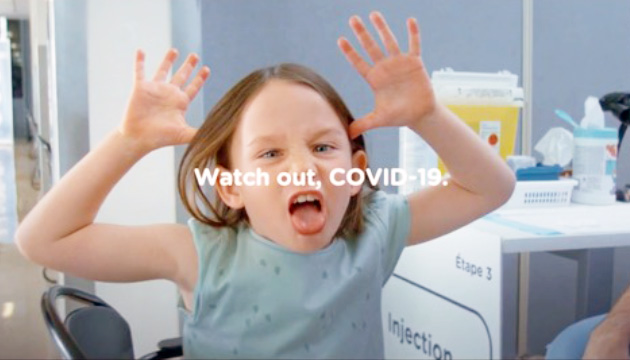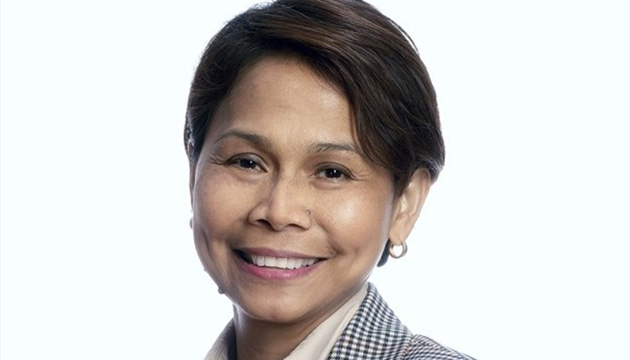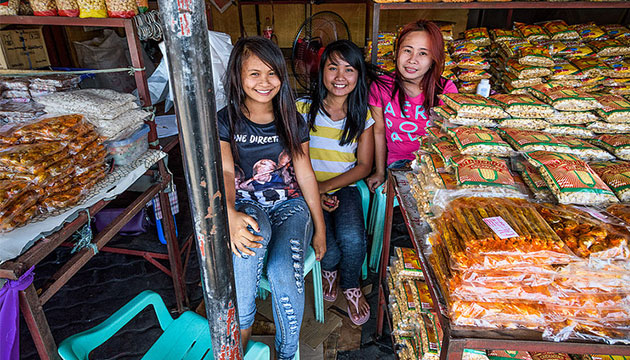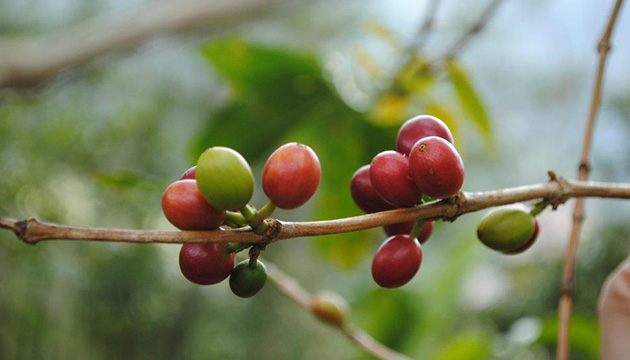(This is Part 38 of Dr. Pagtakhan’s column Medisina at Politika in Pilipino Express.)
Editor’s Note: In February 2020, CFNet started publishing Dr. Rey Pagtakhan’s Commentary on COVID-19. Now on Part 38 of his running commentary, Dr. Pagtakhan – a retired lung specialist and former Member of Parliament – has kept the Filipino community and other CFNet readers continually informed about 1) the pandemic and its impact, 2) the scientific advances on drugs and vaccines, 3) the effectiveness of public health measures, including mass vaccination, 4) the danger of misinformation and disinformation, and 5) sound public health policy.
On Friday, November 19, Health Canada approved the pediatric formulation of Pfizer-BioNTech COVID-19 vaccine for kids 5 to 11 years of age. A momentous day, indeed!
It has been nearly a year since the adult version of the vaccine received emergency use authorization and about half-a-year since adolescents as young as 12 were added to the vaccine-eligible pool (CFNetCommentary: Canada on the Verge of Having a New Pediatric Vaccine…Nov.16, 2021). Thus, we have reason to be thankful – a pediatric vaccine is finally available in the True North country.
But, why only now in Canada? In fact, a similar question might also be asked: What took so long for the U.S. to grant its own approval to the pediatric vaccine?
Hopefully, analysis of these questions would give our readers not only specific answers but also – and more importantly – a better understanding and appreciation of double-blind vaccine clinical trials particularly in infants and children, their results and their value in helping us make an informed decision about their safety, efficacy and quality. Also, insights gained from consideration of these queries should help build trust and trustworthiness and motivate vaccine acceptance.
Basis for asking the question: importance of vaccine availability and perception of delay
First, let me summarize the observations that relate to the importance of the vaccine for kids 5 to 11 years of age and the implied concerns related to its non-availability:
- Occurrence of new cases for most of the fourth pandemic wave has been highest in this specific age group;
- Reduction in infection rates and outbreak-associated cases among older children aged 12 to 17 years following vaccination was notable;
- Serious disease, including inflammation in the heart, lungs, and brain as well as long-term complications and deaths - although still less frequent than in adults – have occurred;
- Infections within this age group increase intergenerational exposure;
- Children in this age group congregate in large settings and events – schools, daycare centers, anniversary celebrations; school work, team sports, and other social events are priorities for children and they should not be hindered by fear of exposure or as a source of transmission;
- Pandemic control measures have disproportionately adversely affected children’s well-being: physical, emotional, and mental;
- Waiting a significant period for a vaccine has amplified children’s lingering fears and continuing harms;
- Reducing transmission reduces continuing circulation of the virus and emergence of variants of concern;
- Increasing the total population pool of the vaccinated hastens attainment of community immunity; and
- Immunizing this age group would help in eventually controlling the pandemic;
Second, let me summarize the reasons for a perception of preventable delay in having in Canada the pediatric vaccine for this age-specific group:
- Canada and the world have had at least a two-year experience of success with the adult formulation not only in adults but also in adolescents as young as 12 from clinical trials and surveillance data of real-world utilization;
- It has already received full licensing approval for marketing with its brand name Comirnaty;
- It has met the high standards required for evidence of safety, efficacy and quality; and
- It has widely received a high level of public confidence as reflected in its acceptance (per cent of the vaccinated population).
So remarkably high was the level of confidence engendered that, reportedly, “some parents, pediatricians and scientists (in the U.S.) began debating whether it could be administered “off-label.” That is, to administer a government-approved vaccine to another population age group in a different dosage such as to the much younger non-eligible kids than what it was approved for. Briefly considered, but the feasibility was swiftly cast aside. This was not surprising since the U.S. regulatory process is deemed the world’s strictest in granting emergency use authorization to new drugs and vaccines.
Likewise, the Canadian regulatory process is as strict and comprehensive as it is independent. Thus, it was equally not surprising that we experienced the nearly three-week delay from October 29 when the U.S. gave its initial green light to the pediatric formulation of this vaccine and November 2 when the approval process was fully completed to November 19 when Canada announced its own approval.
Understanding pediatric clinical trials
A science essay and a vaccine blog: The science essay why kids need their own COVID-19 vaccine trials by science writer Sarah Elizabeth Richards (S.E. Richards: Science Coronavirus Coverage. National Geographic. February 19, 2021) and the vaccine blog when will children and adolescents be vaccinated against COVID-19?by Professors Anna Durbin, William Moss,Kawsar Talaat and Ruth A. Karron (A. Durbin et al: Department of International Health, Center for Immunization Research, and the International Vaccine Access Center. Johns Hopkins University Bloomberg School of Public Health and Medicine. Coronavirus Resource Center. February 25, 2021)jointly provide me with the backgrounder and references for my analysis of the question: Why only now in Canada for the Pfizer COVID-19 pediatric vaccine for kids 5-11?
Science writer Richards opened her essay with the story of librarian Megan Egbert and her two daughters ages 12 and 14 who promptly agreed, upon hearing about the recruitment drive for volunteers to join a COVID-19 vaccine clinical trial. While the daughters became instant “mini celebrities” in their school following their first jabs and were applauded by hundreds in social media as “brave young ladies,” the mother received the message that she is “using the kids as guinea pigs…it’s not for teens until it’s been tested.”
This type of message illustrates the well-known puzzling question in doing clinical trials in children on medical drugs and vaccines. As Richards has aptly emphasized: “How can scientists know the vaccines are safe for children unless they test them on actual children? And if children can benefit from the vaccine and play an important role in establishing herd immunity, why have pharmaceutical companies waited to study them?”
To this I add a related question: Why do vaccine manufacturers start their clinical trials in children, in contrast to adults, in staggered age groups (also called as “age de-escalation” strategy), starting with the adolescents (12 to 17 years of age) and gradually going to infancy (5 -11 years; 2-4 years; and 6 months – under 2 years)?
Children are not just small adults: Answers to these questions require an acknowledgment that children do have different body metabolism, as Professor Anna Durbin and her colleagues at Johns Hopkins University would like to remind us in their vaccine blog. Children’s development and maturity are ongoing processes. Below is a list of reasons why children need their own clinical trials.
- Foremost, government regulatory agencies as in Canada and the U.S. require that vaccines be independently studied in children for a number of reasons:
- Their immune systems are still maturing and may react to the COVID virus differently;
- They may have side effects or adverse reactions that do not occur in adults;
- They might respond better or worse; and
- They may need a child-specific formulation and dosage schedule unique to the different age-subgroups.
- Also, researchers could build on the results obtained in adult study; that is, if proof of efficacy from studies in adults is solid, pediatric clinical trials could focus more on safety and immune response; thus, clinical trials may not require as large a study as in adults;
- Clinical trials in children must be low risk and offer clear potential for benefits, that is, kids ought to be protected from unnecessary risk. That is why, institutional research ethics committees are created and do review research proposals for compliance with the principles and integrity governing participation in pediatric clinical trials.
Pediatric clinical trials more challenging: Why? Frequent appointments for monitoring (interviews, blood tests), dutiful record-keeping of signs and symptoms that may develop or not for many weeks and months, and telemedicine visits do impose a heavy burden on research participants. Their parents may require access to daycare centers and transportation and may find it difficult to juggle their schedules between their jobs and research visits. Put all these together and you develop a clear picture of why pediatric clinical trials of vaccines can be most challenging. Although they are reimbursed for expenses needed to participate, participants may not be paid except for a modest honorarium.
Indeed, both parents and children really need to connect with the research project. They need to develop a deep sense of “emotional connection” – a sense of purpose and altruism – to enroll and remain in the clinical trials. They really deserve our deep appreciation. And I am pleased to share, if I may, that I had been privileged to see participants’ altruistic engagement during my pre-retirement years.
Give children a say in vaccination: NACI advice and Prime Minister’s statement
In its Summary Statement, the National Advisory Committee on Immunization (NACI. November 19, 2021) issued this guidance: “It is essential that children and their caregivers are supported and respected during the decision-making process so they are able to make an informed decision about COVID19 vaccination” (bold print is mine). [Note: I have discussed the formulation and related information about the new pediatric vaccine in my preceding Commentary – see CFNet Nov 16, 2021.]
The following day, Prime Minister Justin Trudeauechoedthe same sentiment in his National Child Day statement: “Today, …we celebrate the rights of children, …We know that vaccines are one of the most effective ways to protect ourselves, our families, and our communities from COVID-19. Children under the age of 12 have waited patiently…now, children between the ages of five and 11 will be able to get vaccinated, …the government will continue … to ensure parents and guardians are supported in making informed decisions on COVID-19 vaccination” (bold prints are mine).
Indeed, children want to have a say. They want to “be partners, not pawns,” as Canada continues its fight against the COVID-18 virus and its variants of concern.
Summation
Immunization is a story of medical success. The availability of the new Pfizer pediatric COVID-19 vaccine – the first ever approved in Canada – is a welcome addition to our public health tools to help control the pandemic. Immunization of children 5 to 11 years of age – the age group that has the highest occurrence rates of new COVID-19 cases for the most part of the pandemic fourth wave – is timely, indeed. Particularly as the newest variant of concern, Omicron, appears eager to start its global journey.
It took a while for the Pfizer pediatric vaccine to make its way to approval in Canada, in fact, even in the U.S. Now we understand and appreciate why the temporal route was long. Children have to have their own independent clinical trials and only when the potential for benefits – to citizens and country - far outweigh the risks. That is, for an abundance of caution and care about our children whose say on matters that affect them shall be respected and protected.
Better understanding of 1) the ethical principles governing clinical trials of vaccines, 2) the rigorous requirements for safety, efficacy and quality that must be met, 3) the comprehensive evaluation done by the U.S. and Canadian regulatory agencies on the Pfizer pediatric COVID-19 vaccine (Comirnaty), and 4) the review done by NACI with its subsequent summary of recommendations and guidance give parents and their children the basis for trusting the trustworthiness of this vaccine.
We understand, too, why only now we have the Pfizer pediatric COVID-19 vaccine in Canada.














